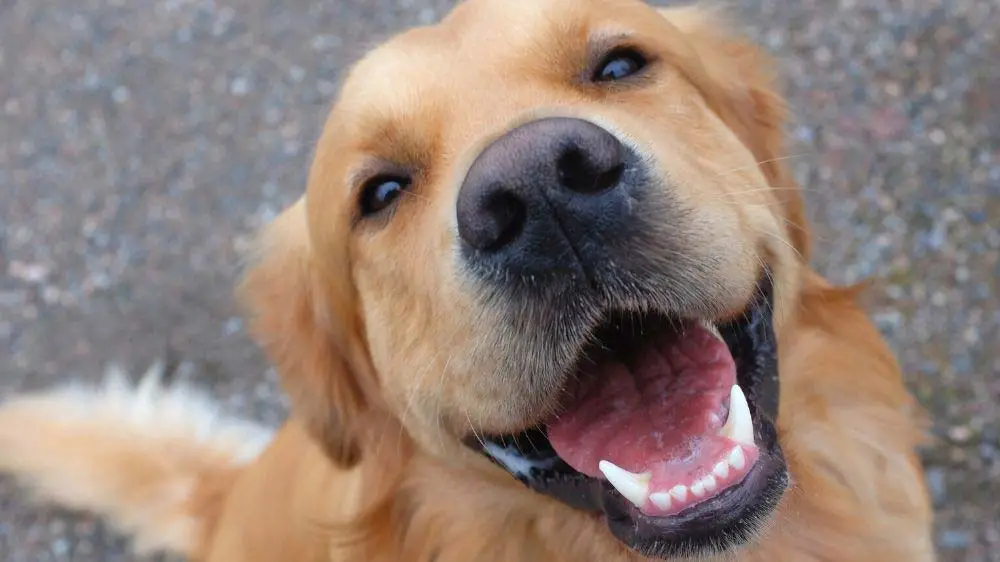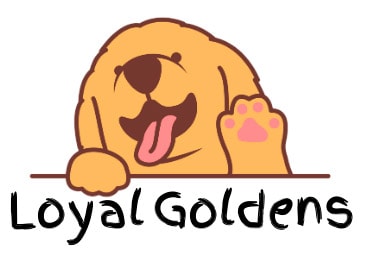Golden Retrievers are one of the most popular dog breeds in the United States. They are known for their friendly personalities and intelligence, but like all dogs, they have two glands under their tail that may cause problems if these glands get blocked, and the fluid they secrete isn’t expressed naturally. The real question is: Do Golden Retrievers need their glands expressed manually?
Most Golden Retrievers will only need their anal glands expressed if problems arise. You will know that your dog has problems if they regularly scoot their rear on the ground, bite the base of their tail, excrete a pungent liquid at times other than defecation, and/or a red bulge appears near the anal glands.
Most larger breed dogs, including Golden retrievers, will go their entire lives without needing their anal glands expressed, while other Goldens may need to have their glands manually expressed about every six months. As a breed, Golden retrievers are not particularly prone to this problem.
In the rest of this article we will further discuss how to identify issues with your Golden retrievers rectum and glands, and how to solve them. So, get your disposable gloves ready, and be prepared to analyze your Golden retrievers behavior to see if they need their glands expressed.

(This article may contain affiliate links and loyalgoldens may earn a commission if a purchase is made.)
Unlock your goldens natural intelligence and see just how quickly problem behaviors disappear.This is the best at home dog training I've ever used!
How To Recognize Anal Gland Problems in Golden Retrievers
If you have a strong bond with your Golden Retriever, you may notice right away that something is wrong with your dog by the way he’s behaving. If not, don’t fret! There are many ways to identify anal gland (aka anal sac)problems easily.
Some warning signs of anal issues includes but is not limited to:
- Excreting a liquid with a foul, fishy smell at times other than during defecation (pooping)
- Biting the base of their tail
- A swollen red bulge near the general area of the anal glands
- Dragging their rear on the ground
- Straining while defecating
- Difficulty sitting still or sitting at all
- Chasing their tail (this can be normal, but when combined with the other symptoms, it’s not typically a good sign)
If your dog is showing any of these warning signs, there’s a high chance that they may be experiencing anal glandular problems. Don’t worry, though! As long as you take care of it, your dog will be perfectly fine.
If you don’t want to see any of these signs, there are ways to prevent it before it happens. But to get to that point, we need to know what causes gland issues in the first place.
Anal Gland Problems in Golden Retrievers: What’s The Cause?
Why exactly might your Golden experience these issues?
Well, there are various reasons for anal gland issues in Golden retrievers. However, the main cause of this uncomfortable probem is overly soft feces, which is caused when their nutritional needs aren’t being met. There are a lot of low quality dog food brands on the market that don’t have enough nutrients, which can cause your dog significant long term problems.
As you know, high quality dog food can get expensive, so it goes to reason that cheap or inexpensive dog food is often lacking in important nutrients.
Other causes include medical issues like misplaced glands or cancer. If you think your dog may be at risk for these medical issues, the best course of action is to take them to the vet.
If you’d like to prevent gland issues before they happen, you can feed your dog food that is rich in nutrients and vitamins. You could also proactively practice good hygiene and regularly check for the signs of problems prior to them becoming major issues.
How To Solve Issues With Your Golden Retrievers Anal Glands
Now that you’ve become familiar with the causes and the symptoms, it’s time to help your Golden Retriever if they are showing signs of impacted anal glands. There are a couple of ways to do this, so look through the following to find the best method for you.
If these remedies aren’t working, or you can’t do it yourself, take your dog to see the vet (a dog groomer usually provides these services as well). They will be able to help you through the entire process as you provide support for your loving pup.
How To Express Your Golden Retrievers Anal Glands
Maybe you want to express your Golden retriever’s glands yourself. Perfect! Keep in mind that you should only do this if your retriever is not bleeding or has pus around their rectum. If that is happening, immediately take your dog to a vet to undergo this procedure professionally!
You will need the following:
- Disposable gloves
- Vaseline
- Some paper towels
- A nice, warm and soapy washcloth
- A helper (to hold your dog)
When you’re ready, kneel to one side or the other behind your Golden Retriever. If your retriever is smaller, put them up on a platform/table.
You’ll want your helper to gently hold your dog by placing one of their arms underneath and around their neck in a cradling position while their other arm closely hugs the remainder of their body. Pull-on the disposable gloves and cover your index finger in vaseline.
Gently lift up their tail and slowly put your index finger about an inch into your dog’s anus. Leave your thumb outside the anus and bring your thumb and index finger together on the right side, gently moving them around to locate the gland. You’ll know you’ve found the gland if you feel a firm small object.
Once you’ve found the anal gland, place a few paper towels on the floor behind your dog’s rear. Gently massage the gland’s liquids toward you with a light pressure, and catch any anal gland secretion with the paper towels. Once you can no longer feel the bump, you’re done. Follow the same exact steps for the second gland on the left-hand side. Once you have finished, use the warm and soapy washcloth to further cleanse the area; this gets rid of the odd, pungent stench. Trust me, this is not a good smell, so doing this outside is probably your best bet.
Please be sure to give your dog a treat afterward and lots of affection. They deserve all the love they can get for going through that!
Golden Retrievers: Food’s The Best Remedy for Anal Gland Issues
There’s a better than average chance you don’t want to shove your finger in your dog’s rectum, which is entirely valid and fair. Your best option then would be to switch out your dog’s food with a higher quality dog food that is rich in fiber and nutrients. You can even add foods high in fiber, such as canned pumpkin, brown rice, apples, vegetables, and more. Many “human foods” that dogs can consume are rich in fiber and can solve these issues naturally.
If you need a dog food that’s rich in all the right nutrients, but you don’t know where to start, look no further. Over on Amazon.com, you can get the Rachel Ray Nutrish Dry Dog Food. It’s safely USA-cooked, and it has naturally added vitamins and minerals. However, keep in mind that changing your dog’s diet will take time, and changes will not happen overnight, but ideally a firmer bowel movement will naturally express the dog’s glands. You’ll need to be patient.
Make sure to support your dog through the entire journey and take them to the vet if symptoms worsen. Sometimes you just can’t help as much as a professional can, and that’s okay.
What if Their Anal Gland Problem Isn’t Fixed?
Maybe you didn’t notice the warning signs, maybe the vet appointment is too far away, or maybe there’s another reason. Nonetheless, your Golden retriever is going to be okay for a while. But if the symptoms get worse and worse, problems may arise.
If there is a bacterial overgrowth, it may cause swelling, pus formation, and possibly rupture causing serious pain. While this can be soothed with a warm washcloth, you will need to get your Golden to a vet as soon as possible.
If you’re sure your dog is perfectly healthy and yet still suffers from gland issues, they may have anal sac disease and need their anal glands removed. However, make this your last resort. Do not immediately assume your dog needs surgery unless you have consulted with a vet.
Final Thoughts
We all want our dogs to live without any serious problems, such as anal gland issues. To prevent them, feed your dog a diet rich in fiber and vitamins, practice good hygiene, and check for the signs to detect any issues as soon as possible. These signs include the excretion of an aromatic liquid at times other than defecation, straining during defecation, biting at the base of the tail, and more.
These glandular issues, while an unpleasant experience for the dog and dog owner, are generally not serious, and there are ways to address the problem, but you should ultimately consult with a vet first. Most importantly, support your dog through the entire journey and give them plenty of love and affection as this issue and treatment can and will be difficult for them.
More Golden Retriever Articles You’ll Love!
- How to Care for Golden Retriever’s Teeth: A Step-by-Step Guide
- How to Take Care of Your Golden Retriever’s Coat: Step-by-Step
- How to Care for a Pregnant Golden Retriever (A Complete Guide)
Sources:
